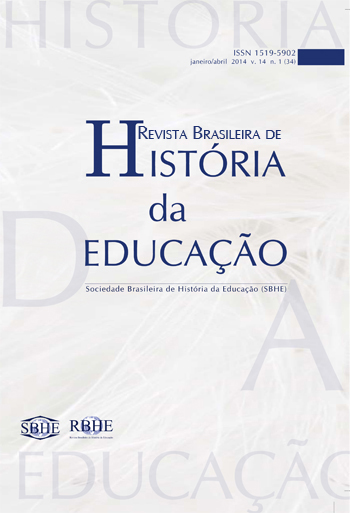Tupinambá children and their education in the 16th century: kindness, pain, obedience
Abstract
Every society socializes its youngest members by a set of rites of
passage. The Tupinambá are no exception to this. In the 16th
century, the Portuguese were amazed by the socialization models
practiced in that society. The ‘couvade’ particularly drew their
attention, though they never really understood it and frequently
regarded it as a barbarian ritual. For those who pay deep attention
to these practices, however, a rich set of information emerges in
all its complexity, allowing us to weave social links and
integrating differences between age groups or genders, among
others. Far from the ideological view conveyed by the Portuguese,
which presents these communities as if they had no real
educational rules, Tupinambá society is actually very structured
and concerned about the education of its children.
Downloads
Os direitos autorais pertencem exclusivamente aos autores. Os direitos de licenciamento utilizados pelo periódico consistem na licença Creative Commons Attribution 4.0 (CC BY 4.0): são permitidos o acompartilhamento (cópia e distribuição do material em qualqer meio ou formato) e adaptação (remix, transformação e criação de material a partir do conteúdo assim licenciado) para quaisquer fins, inclusive comerciais.
Recomenda-se a leitura desse link para maiores informações sobre o tema: fornecimento de créditos e referências de forma correta, entre outros detalhes cruciais para uso adequado do material licenciado.













